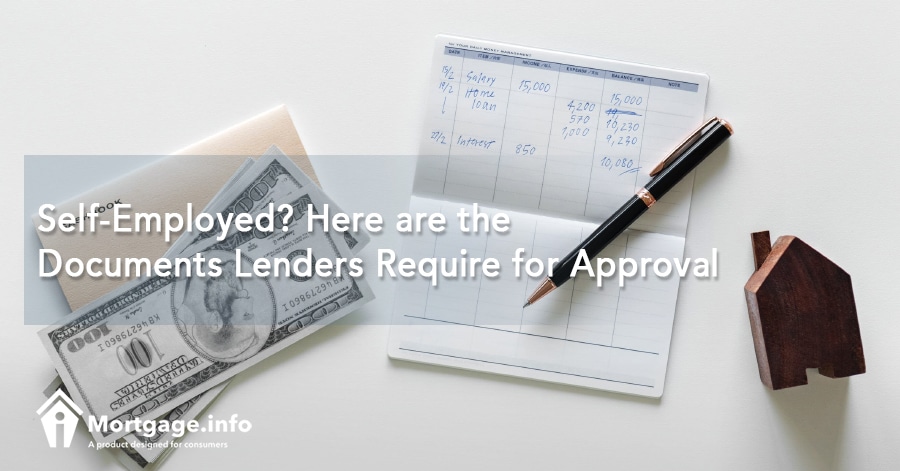
You own your own business and couldn’t be happier. You are in charge of your income and don’t have to answer to anyone. That all changes when you want to apply for a mortgage. Lenders look at self-employed borrowers as riskier than those employed by someone else.
Looking for Current Mortgage Interest Rates? Click Here.
This doesn’t mean you can’t get a mortgage. It does mean that you need to provide more documents than a borrower that works for someone else.
Keep reading to learn the important documents you must provide.
The Necessary Self-Employed Documents
Lenders need to see a 2-year history of your financial life. They want to know how owning a business affects your finances. Unlike when you work for someone else, you are responsible for the costs of running the business, which can hurt your bottom line.
Lenders typically ask for 2 years of your personal tax returns with all schedules for starters. This gives them a birds’ eye view of your bottom line. They use your adjusted gross income on your tax returns as your income. This number may be drastically different from what you actually take in, but because you deduct the business expenses, the lender must take them off your gross income.
In some cases, you may also need to provide 2 years of your business tax returns. This only applies to you if the following are true:
- You have been in business for less than five years
- Your personal income taxes show a decrease in income over the last 2 years
- You recently opened your business
Lenders will also need a year-to-date Profit and Loss statement. This helps them see where you stand this year compared to your income in prior years. They just want to know that you are on the same track. Lenders need to see consistency and reliability whether you are self-employed or not, and the YTD P&L helps them see that.
Many lenders also require that you supply at least 2 months of bank statements to prove your worth. Some lenders require self-employed borrowers to have cash reserves. This is money you have available to pay your mortgage should something happen to your business for a few months. The more cash reserves you have on hand, the better your chances of approval become.
Click to See the Latest Mortgage Rates.
You may also have to provide 3rd party verification of your self-employment. Some lenders require a signed and dated letter from your CPA stating that you are self-employed and the dates that you owned or own your business. Some lenders may accept your business license as proof of your self-employment, but having that 3rd party verification can only help you.
What Lenders Want From Self-Employed Borrowers
It may seem like lenders ask a lot from self-employed borrowers, but it’s not much different from what they want from employed borrowers. It all comes down to consistency and reliability.
Generally, they want to see:
- Stable income – This goes for any borrower, but especially the self-employed borrower. Lenders want to see year-to-year consistency. It’s normal to have fluctuations in income throughout the year, so don’t worry about that. What they want to see is consistent and/or increase income from year-to-year. If you made less one year than the year before, be ready with an explanation.
- Reliability – Lenders prefer it if you open a business that you know. If you open a business in the same line of work you did for 10 years prior to starting your own company, it may bode well with a lender. They see reliability and the chance of success. If you open a business in a completely different line of work, you may end up with a few more restrictions placed on you, as your reliability may not be as secure.
- Good credit – You will have the same credit score requirements as an employed borrower for the standard loan programs. But, lenders may comb over your credit history with a little more scrutiny. They’ll look for a pattern of late payments, foreclosures, or bankruptcies. They want to know that you are financially responsible.
- Good down payment – Lenders also like to see self-employed borrowers have a little ‘skin in the game.’ With your own money invested in the home, you are more likely to do what it takes to get the mortgage paid. Borrowing close to 100% of the loan amount is risky for the lender. If you add to that the fact that you are self-employed and the risk could be too high for lenders.
As a self-employed borrower, just be prepared to supply more documents than the employed borrower. It’s not a deal breaker by any means. You just need to make sure you have compensating factors that make up for the risk that self-employment provides a lender.
